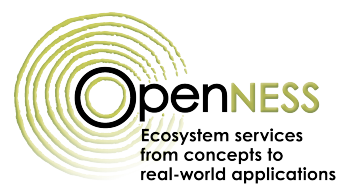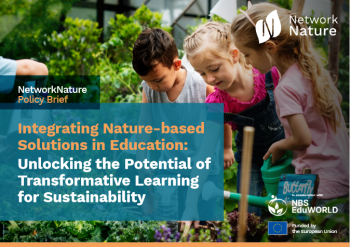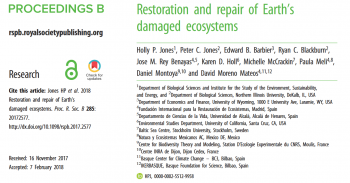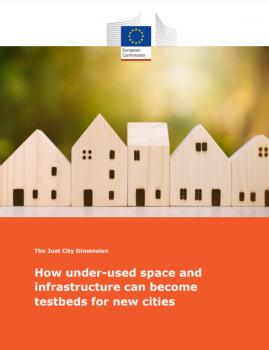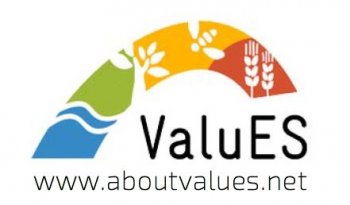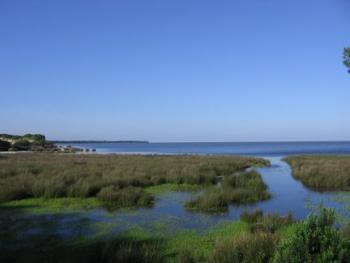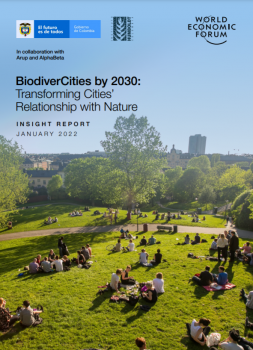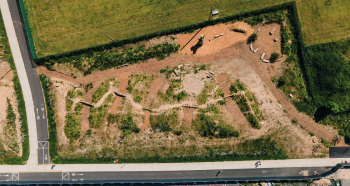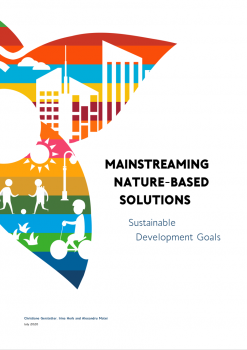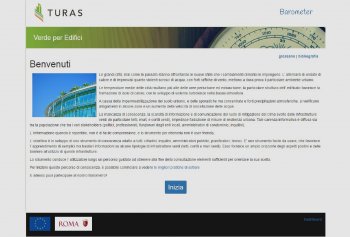Urban Nature: Connecting Cities, Nature and Innovation (MOOC)
How can nature help us design and build our cities? Nature-based solutions have the potential to provide multiple benefits across a range of sustainability challenges facing cities. This course will explore nature-based solutions in cities in Europe and around the world. It will connect together
The SPIRAL synthesis report: A resource book on science-policy interfaces
This is a resource book on good practices to improve the effectiveness of existing science-policy interfaces or develop new ones. The resource book synthesises information gathered and research done throughout the SPIRAL project (‘Science-Policy Interfaces: Research, Action and Learning’). The
Adaptation of trees and forests to climate change: the importance of genetic variability
The policy brief “Adaptation of trees and forests to climate change: the importance of genetic variability” is derived from the BiodivERsA-funded LinkTree project, which examined the genetic variation within forest tree populations in five European countries, and assessed how this variability and
GLOBAL YOUTH NATURE-BASED POSITION STATEMENT ON SOLUTIONS
This statement represents the first-ever, globally representative and collectively crafted position from young people on “Nature-based Solutions”. We are addressing decision-makers and key stakeholders, to present our own views, priorities, and demands from the NbS conversation which,
Taking Action for Urban Nature - Business Model Catalogue for Urban NbS
The Business Models Catalogue for urban nature-based solutions presents eight different business models for urban nature-based solutions. These were identified based on 54 in-depth case studies of urban nature-based solutions, both in- and outside of Europe. These models explain which values
Method Factsheet - Revised Universal Soil Loss Equation (RULSE)
The Revised Universal Soil Loss Equation (RUSLE) is an empirical erosion model recognised as a standard method to calculate the average risk of erosion on arable land. It developed from the Universal Soil Loss Equation (USLE) developed in the US Department of Agriculture and has other similar
Environment Employment Alliance
Methodological guide for fostering sustainability transition of key local economic sectors - supporting small local innovative initiatives by governing interaction between public and private actors (or societal niches and public institutions).
Integrating Nature-based Solutions in Education: Unlocking the Potential of Transformative Learning for Sustainability
This policy brief provides a timely and brief overview of the current policy incentives for NbS and sustainability education in Europe, identifies key barriers and opportunities in supporting education systems in taking up NbS education and offers key recommendations for policy makers, educators,
Restoration and repair of Earth's damaged ecosystems
Given that few ecosystems on the Earth have been unaffected by humans, restoring them holds great promise for stemming the biodiversity crisis and ensuring ecosystem services are provided to humanity. Nonetheless, few studies have documented the recovery of ecosystems globally or the rates at which
QUICKScan
QUICKScan is a tool to facilitate the decision process in participatory settings. By including stakeholder knowledge and preferences and the ability to calculate impacts in-situ, QUICKScan combines tacit expert knowledge with available spatially-explicit monitoring and statistical and uses
How under-used space and infrastructure can become testbeds for new cities
This article is part of a series of articles based on the 14 Partnerships of the Urban Agenda for the EU. Structured around the three city dimensions of the New Leipzig Charter (the Productive, the Green, and the Just City), the articles link Partnerships’ actions and activities with other relevant
GIZ ValuES - Method Profile: Participatory mapping
Contrary to other mapping tools, participatory mapping does not primarily draw on statistics or research data, but on the practical knowledge of people. Participatory mapping visualizes local knowledge and makes it visible to all. There are several participatory mapping tools available. In an
- Report
Nature4Cities - Social acceptance method
The Nature4Cities social acceptance method is an NbS implementation support tool. This methodological tool aims to study social acceptance (socio-political, community and market acceptance) and barriers (social, economic and cultural) as key factors for the implementation of NbS projects. It is
Deliberative mapping of ecosystem services within and around Donana National Park (SW Spain) in relation to land use change
The establishment of protected areas is one of the main strategies for preserving biodiversity from land use transformation. However, a great number of protected areas are becoming isolated due to land use changes in their surroundings.
Nature-based Solutions in European and National Policy Frameworks
A growing recognition of the value of ecosystem services and the wider socio-economic and socio-cultural benefits provided by natural systems has spurred a shift in urban policy and planning discourse, aiming to integrate these considerations into decision-making processes. The review finds current
BiodiverCities by 2030: Transforming Cities’ Relationship with Nature
Cities are the engine of the global economy - contributing 80% of the world’s GDP – but their exponential growth in recent decades has come at the expense of nature. The built environment has grown by two-thirds in the first 12 years of the 21st century, leading to the degradation of local
Stated preference valuation
A family of techniques which use individual respondents statements about their preferences to estimate change in utility associated with a proposed increase in quality or quantity of an ecosystem service or bundle of services. Respondents are presented with one or more hypothetical policy or
Mainstreaming Nature-Based Solutions: Sustainable Development Goals
This report argues that nature-based solutions can contribute to achieving the SDGs because they often address public interest objectives and sustainability dimensions at the same time. This makes nature-based solutions effective instruments for addressing sustainability-related challenges in an
Opinion Barometer
Online tool for collecting information and opinions in the course of introducing new UGI approaches and doing UGI transition projects.
- ‹ previous
- 8 of 51
- next ›






